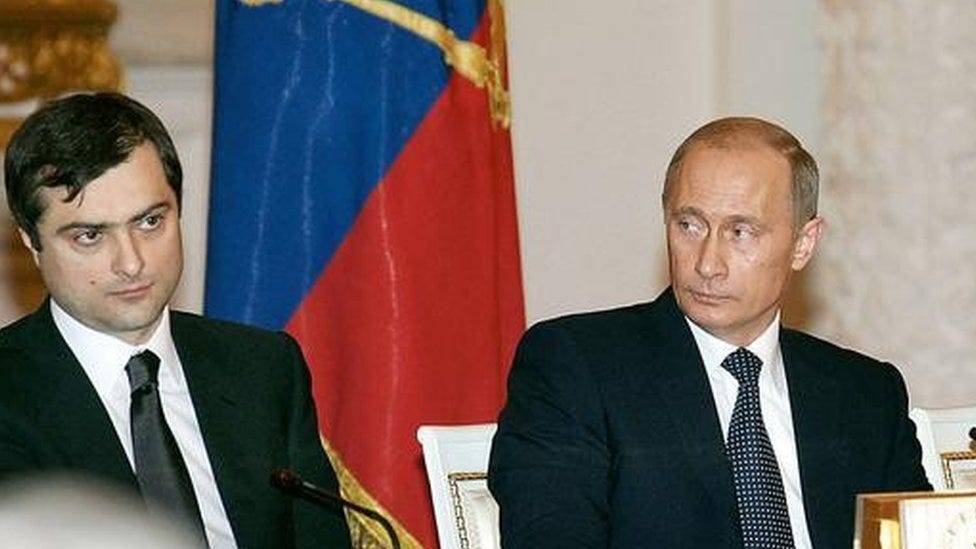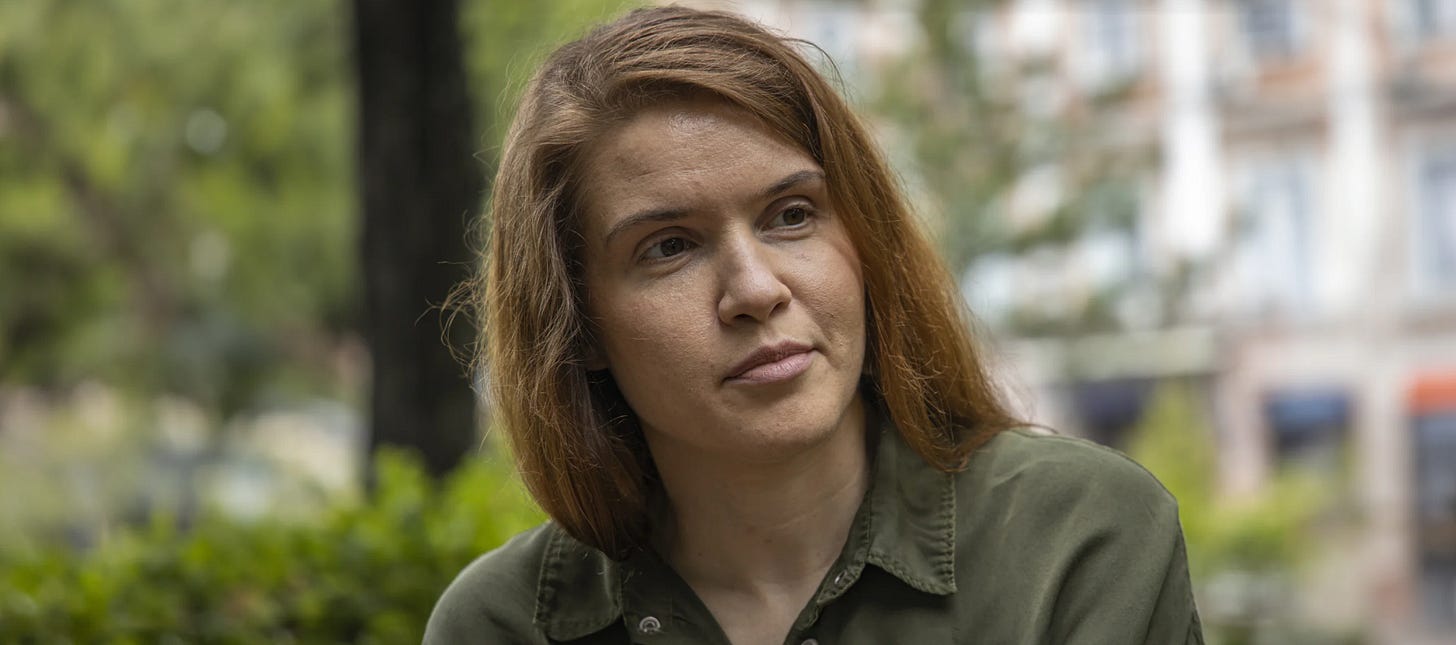Political technologies - Bezuhla
Zaluuuuuzhnnyyyyy, where are the drones!!!! Ukraine's female Prigozhin and Yermak, Budanov. Patrons, technologists and technologies
The immortal science of political technology
One of my favorite terms from the post-soviet space is that of ‘political technology’. Essentially, it refers to various techniques to control public opinion and politics. It implies a certain degree of illusion, trickery. A postmodern puppet show. The key idea is the management of politics - not necessarily its direct control, but the channeling of existing energies into desired directions. Hardly a Russian or Soviet invention, of course.
In any case, perhaps the quintessential ‘political technologist’ was that ever-so postmodern Vladislav Surkov, who is both credited with and takes credit for the creation of the ‘Putinist’ political system in the 2000s. Among his various ‘political technologies’, it is claimed, was the cultivation of a wide range of ‘controlled oppositional political movements’, from neo-nazi skinheads to earnest urban liberals. With the aim of both channeling oppositional activity into safe directions, and also contrasting the insane antics of opposition antics with the rational technocracy in power.
The invention of Bezuhla
Today I’ll be taking a look at a fairly regular creature of this substack - Maryana Bezuhla. Not as a political technologist, but as a political technology. For those unacquainted with this peculiar gadget, and those already somewhat more familiar with her activities, here is a deeper dive into Bezuhla-tech.
In short, Bezuhla is a brazen critic of the top army brass, but many claim that her work is simply a political technology ordered by Zelensky/Yermak. The aim being to shift blame onto the army and away from the political leadership, and to distract society with endless caning and dismissal of the ‘corrupt generals’.
But let’s first go into the woman herself. The following is mainly gathered from a recent investigation into Bezuhla from Babel, a fairly high-quality pro-western investigative journalism outfit in Ukraine.
Bezuhla is young, born in 1989, entirely a child of post-soviet Ukraine. Her father was a relatively successful businessman who made his fortune in the 90s, partly because he became the co-founder of the interior ministry’s Pensioner’s Fund. He also owns various major assets, including the Kyiv ‘Granite’ factory. Make of all that what you will.
With such a father, Bezuhla had an active childhood. She apparently visited no less than 50 countries with her parents, and studied at Kyiv’s prestigious 117 gymnasium (college). Located right next to the president’s office, she studied foreign languages at this ‘school of the intelligentsia’. Her preference for English over other languages would serve her well in future years.
Like her mother, a well-off Soviet doctor, Mariana was educated in medicine. She had actually wanted to study painting, but family traditions won out. Another doctor was her grandfather - a military medic mobilized into the Red Army on June 23, 1941 - one day after the launching of operation Barbarossa.
Like all other medics, she was subject to military service, and received an officer’s rank while studying. The only other somewhat notable event during her university years was a 2007 internship in Poland. After graduating in 2011, she worked on her dissertation in a government clinic that serviced ministers, parliamentarians and diplomats - which itself raises certain questions, given her lack of experience at that point.
In spring 2015, being a trained medic, she was mobilized to the ‘anti-terrorist operation’. She underwent a course in tactical medicine and was mobilized into the 128th infantry battalion. Its commander at the time, Serhiy Shaptal, was chief of the general staff until February 2014, and according to Bezuhla, is a ‘grey cardinal of the AFU’.
While at that time the 128th did not send women to the front, Bezuhla sent multiple requests to give her an exception. They eventually relented, and she spent some time in the Luhansk region.
But soon, an important event took place in her life. In August 2015, the USA transferred a $7.5 million EMEDS Basic field hospital to the Armed Forces of Ukraine (AFU). It was given on condition that it would be staffed by medics trained by the US. Since the main criterion was the command of English, Bezuhla was among those chosen, and she received training in the Zhytomyr region by US instructors that year.
I would also note that Bezuhla’s status as a medical medic close to US structures would have also had her rubbing shoulders with my favorite ‘doctor death’, Ulyana Suprun, who I wrote about here. One of Suprun’s main occupations was tactical medicine, which was certainly closer to her heart than the odious Soviet public health system.
Anyway, after her training she and other medics returned to their old units. But things were stranger with the field hospital. It was transferred to Konstantynyvka, then 30 kilometres from the demarcation line. But to the astoundment of journalists and politicians who investigated it in 2016, there were no wounded there. One of the politicians even questioned Bezuhla about it. She was just as infuriated as the rest, but didn’t add anything of interest. She would later claim that this episode motivated her to reform the ministry of defense.
Keep reading with a 7-day free trial
Subscribe to Events in Ukraine to keep reading this post and get 7 days of free access to the full post archives.





